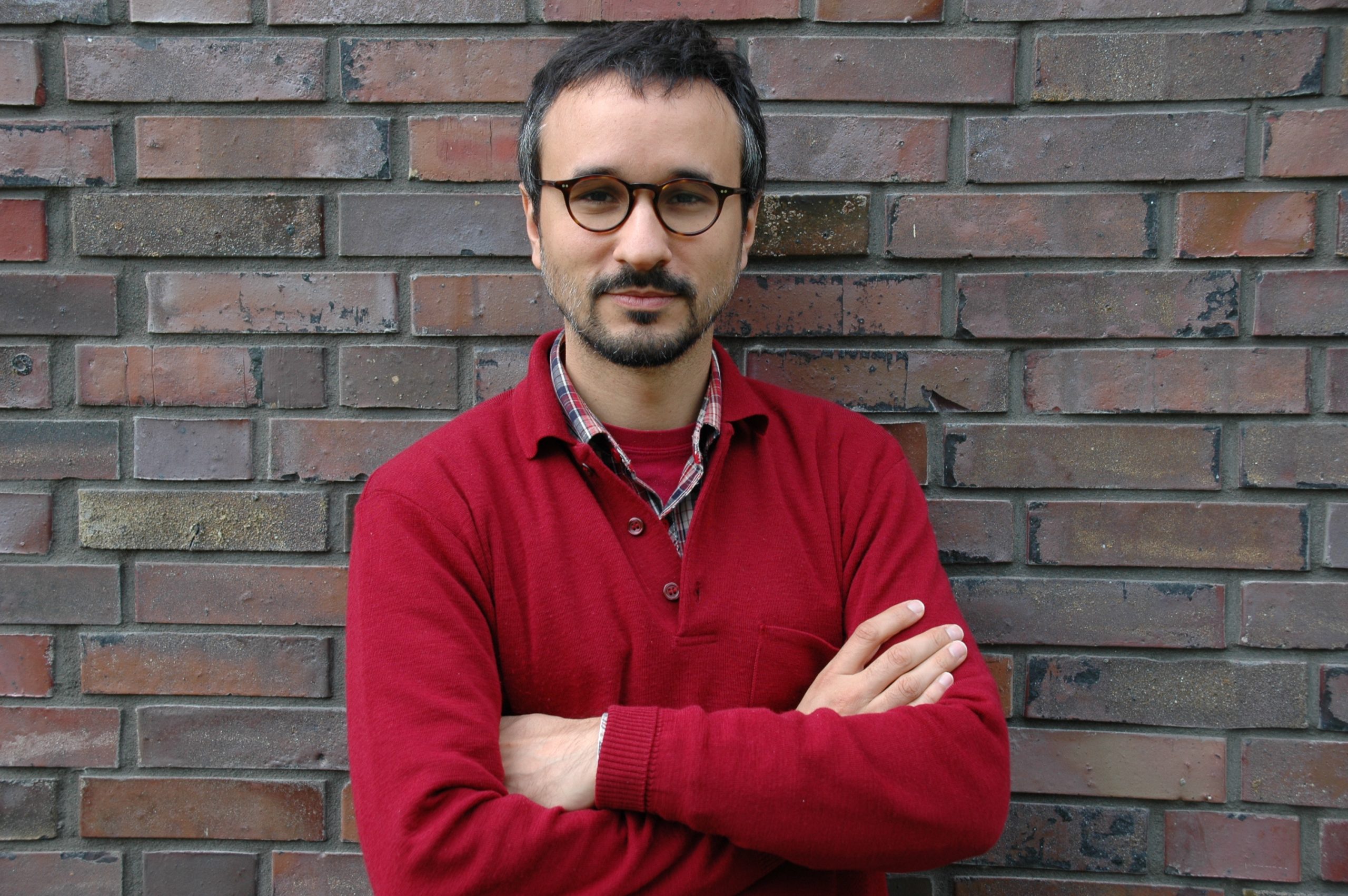Portrait of Michele Catanzaro

In his attic office, piles of paper are spread on the desk: copies of scientific articles, newspaper clippings, books and handwritten notepads. Michele Catanzaro is very busy these days, but very relaxed at the same time. “I enjoy delving into science again”, the Rome-born says with a smile. “I didn´t have the opportunity to pore over things so thoroughly since my Ph.D. time.”
The Barcelona-based freelancer is staying at HITS as the current Journalist in Residence. Candidates from 22 countries had applied for the grant that had been announced internationally for the first time. The jury chose Michele Catanzaro for his abilities and experience. He studied Physics in Rome and subsequently received his doctorate from the Technical University of Barcelona. Since 2000, he has been working as a science journalist for Italian, Spanish, Mexican and British media, like Nature, The Guardian, Physics World, and El Periódico. His main topics of interest are in the areas of science, science policy, and current news. For his work, he received several awards, among them the “King of Spain International Journalism Prize”.
His motivation to apply for the HITS grant was manifold: “Besides the option to work without the pressure of daily business, I saw it as a chance to get back to the roots, because my scientific background lies in theoretical physics.” Moreover, he was curious to learn more about Germany, and, last but not least, there also was a private reason: The opportunity for his partner to join him with their new-born baby. “When I heard about the program, it sounded like the right thing for me at this point of my life and career.”
In August 2014, Michele Catanzaro arrived at HITS. Since then, he has travelled to conferences in Hannover, Berlin, and Magdeburg, he held an internal seminar for the HITSters on science communication and also gave a public talk with the title “Put more Journalism into Science Journalism”. Moreover, he started to learn German, his fifth language. He enjoys the surroundings here: “The buildings and the garden are beautiful; the whole setting makes a great working place.” Here, he has taken the opportunity to deepen his knowledge about data-driven science, in stimulating conversations with many researchers. “A real discovery for me was the area of probabilistic forecasting”, Catanzaro says. “I am aware now that this is a field that´s worth following up with attention.” The interdisciplinary approach appeals to him. “It´s more than just big data”, he points out. “Data and algorithms are changing the game in society.” He specifies a number of topics: “All issues related to privacy, but also the opportunities that data and algorithms can provide, from personalized medicine to interactive governance. My focus as a science journalist is on how science matters to society.” With a smile, Michele Catanzaro takes a notepad from one of the paper piles – he is busy again.
About HITS
HITS, the Heidelberg Institute for Theoretical Studies, was established in 2010 by physicist and SAP co-founder Klaus Tschira (1940-2015) and the Klaus Tschira Foundation as a private, non-profit research institute. HITS conducts basic research in the natural, mathematical, and computer sciences. Major research directions include complex simulations across scales, making sense of data, and enabling science via computational research. Application areas range from molecular biology to astrophysics. An essential characteristic of the Institute is interdisciplinarity, implemented in numerous cross-group and cross-disciplinary projects. The base funding of HITS is provided by the Klaus Tschira Foundation.